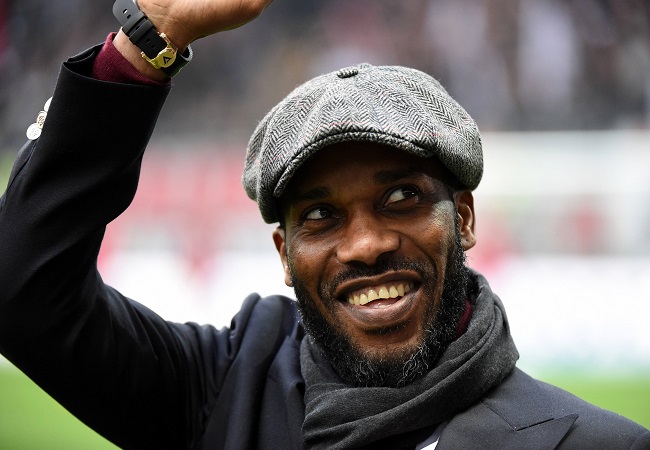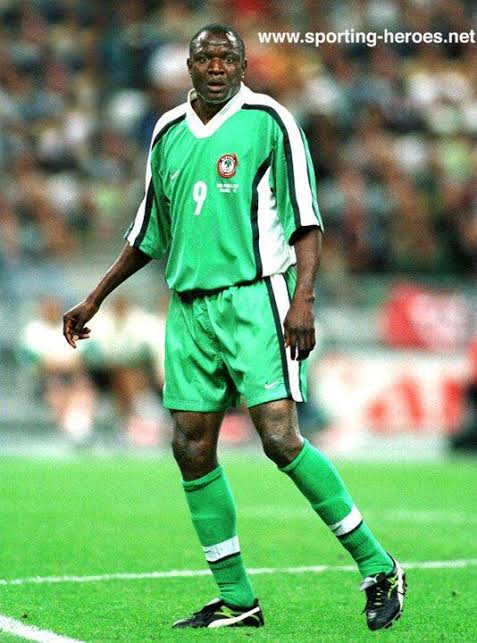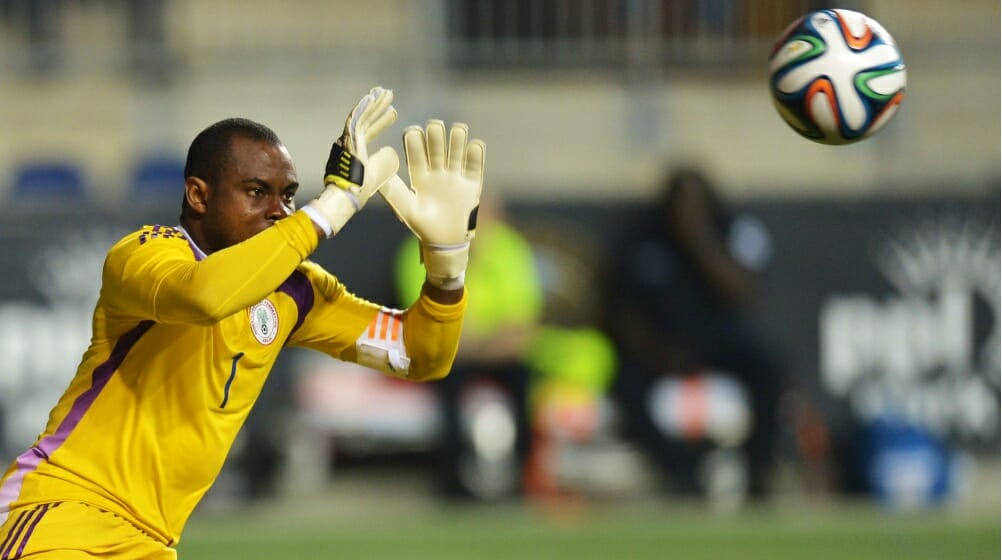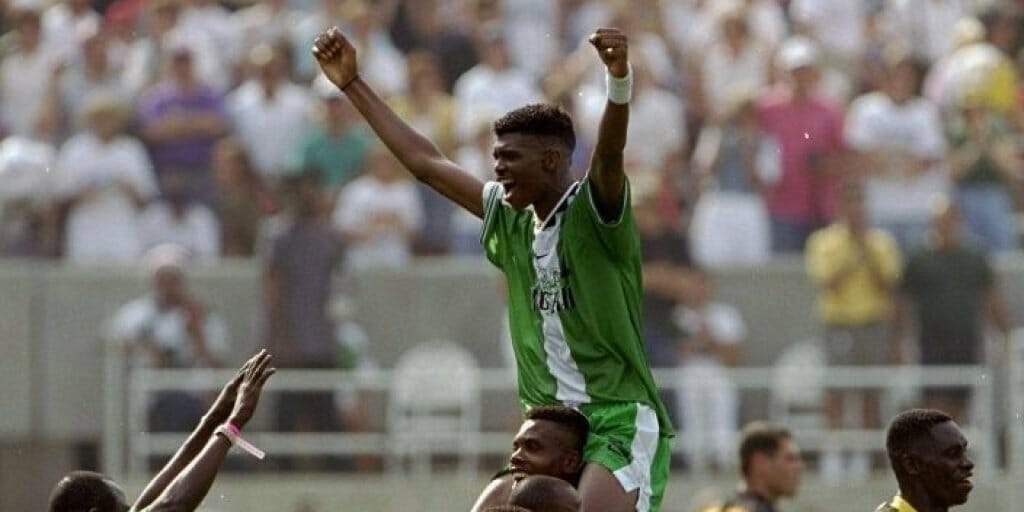Soccer holds a special place in Nigeria’s culture. The nation’s love for soccer can be seen through communities’ support for local teams and its national squad, the Super Eagles.
On match days, Nigerian fans usually gather and watch the match in bars and public spaces. They also embraced modern technology by doing live betting for soccer. It allowed fans to engage in real-time betting on matches.
Live betting enables fans to participate in predicting match outcomes. Several live betting sites offer more convenience by using Bitcoin as their payment method. Implementing live betting soccer with Bitcoin eases real-time wagers placed on matches with faster transactions.
Nigeria has numerous legendary players who left significant marks, both within the country and on the global stage. As this sport developed, many soccer stars emerged to contribute to this country.
Jay-Jay Okocha

Born August 14, 1973, in Enugu, Jay-Jay Okocha, whose real name is Augustine Azuka Okocha, grew up in a soccer-loving family. His elder brother, Emmanuel Okocha, was a professional soccer player. He influenced Okocha’s early interest in the sport.
Okocha started his soccer journey at Enugu Rangers’ youth academy. His skills caught scouts’ attention and made him join top Nigerian clubs like Iwuanyanwu Nationale and Enugu Rangers.
Okocha moved to German club Eintracht Frankfurt in 1992. He won numerous awards throughout his career, including BBC African Football of the Year in 2003 and 2004.
Okocha made huge contributions to Nigerian soccer by being an integral part of the Nigerian national team during the 1990s and early 2000s. He eventually guided them to victory in the 1994 African Cup of Nations.
John Obi Mikel

Born April 22, 1987, in Jos, John Obi Mikel, whose full name is John Michael Nchekwube Obinna, started his soccer journey at a young age. Nigerian club Plateau United scouted him before moving to Norwegian club Lyn Oslo’s youth academy.
Mikel’s potential was soon recognized by the top European club, Chelsea. At Chelsea, Mikel became one of the most consistent midfielders in the Premier League.
Mikel played a crucial role in achieving the Nigerian National Team’s victories, including the 2013 Africa Cup of Nations. He is also a source of inspiration for young Nigerian soccer players.
Rashidi Yekini

Rashidi Yekini, born in Kaduna on October 23, 1963, began his professional career with UNTL Kaduna in the Nigerian league. He later embarked on his journey on the international level.
Yekini became the first Nigerian to score a goal at the FIFA World Cup during the 1994 tournament. He was also the top scorer in the 1994 African Cup of Nations.
Yekini’s impressive goal-scoring record in many leagues makes him one of Nigeria’s greatest strikers. Like Mikel, Yekini inspired countless young soccerers across Nigeria to pursue their passion for the sport.
Vincent Enyeama

Vincent Enyeama, born on August 29, 1982, in Akwa Ibom, began his professional career with Nigerian club Ibom Stars. He then moved to Europe to play for clubs like Enyimba FC and Hapoel Tel Aviv.
Enyeama is one of Nigeria’s most reliable goalkeepers. He played a pivotal role in Enyimba FC, which led to many successes, including winning the CAF League twice.
Enyeama achieved remarkable feats with Hapoel Tel Aviv, including winning the Israeli Premier League and the State Cup. He also represented Nigeria in multiple African Cup of Nations tournaments and FIFA World Cups.
Kanu Nwankwo

Born on August 1, 1976, in Owerri, Nwankwo Kanu embarked on a remarkable football career, starting at Iwuanyanwu Nationale before moving to Europe. His talent and versatility led him to triumph with renowned club Ajax, winning the UEFA Champions League and three Eredivisie titles.
Later, his peak came at Arsenal, where he secured two English Premier League titles and two FA Cups. He then moved on to Inter Milan, where he won the UEFA Cup in 1998. However, it was with Arsenal that he reached his peak, securing two English Premier League titles and two FA Cups.
Beyond his club achievements, Kanu also served as the captain of the Nigerian national team, leading them to victory in the 1996 Olympics. Outside the field, Kanu’s humanitarian efforts established the “Kanu Heart Foundation,” saving the lives of numerous Nigerian children with heart conditions.

![Get to know Nigeria's legendary soccer players. [Unsplash/Jannik Skorna]](https://www.withinnigeria.com/news/wp-content/uploads/sites/5/2023/08/soccer-scaled-750x375.jpg)






Discussion about this post